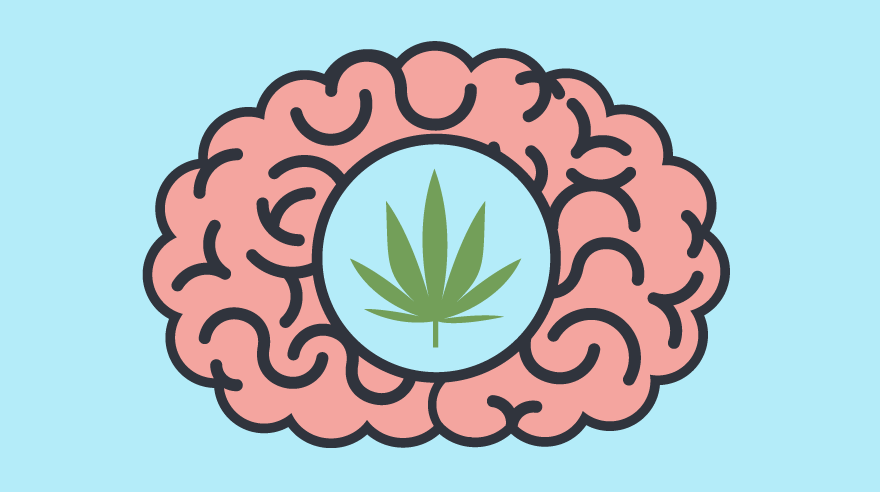The legalization of marijuana has led to an increase in the number of people experimenting with it. For many, smoking weed is a way to relax and escape from reality for a short period. But unfortunately for others, smoking pot can lead to addiction, mental health issues, and poor academic performance.
This article will talk about the effects marijuana has on your brain and how it can affect your life. It will also discuss the different ways in which you can use marijuana responsibly so that you don't experience any adverse side effects from it.
How Does Marijuana Affect the Brain?
Marijuana affects the brain in many ways, but it’s not just because of the THC. The cannabinoid receptors in the brain are where marijuana’s effects are felt, and they affect your mood, appetite, pain sensitivity, and immune system.
THC is the main active chemical in marijuana. It attaches to the cannabinoid receptors in the brain and causes them to be stimulated, sometimes causing a “high” feeling. THC also affects memory and learning, motor function, sensory perception (sight, touch), emotions, and how you feel about yourself.
What are the Side Effects of Marijuana?
There are many side effects of marijuana, some negative and some positive. One of the most well-known side effects is the “high” that comes with smoking weed. This can be a good thing for those who suffer from anxiety or depression, but it can also cause problems like paranoia, hallucinations, and other psychotic episodes.
Is Marijuana a Depressant or Stimulant?
Marijuana is a depressant, not a stimulant. The effects of marijuana are different for everyone. Some people might feel more relaxed and less anxious, while others might feel more paranoid and anxious. The reason for this is that marijuana affects the levels of neurotransmitters in the brain.
These neurotransmitters include dopamine, serotonin, and GABA. Dopamine is a chemical that helps control the brain’s reward and pleasure centers. Serotonin helps regulate mood and sleep cycles. GABA is a chemical that slows down brain activity to produce feelings of calmness or relaxation.
Marijuana also increases heart rate, which can cause an increase in anxiety for some people because it makes them feel like they can’t catch their breath or like something bad will happen soon. This means that marijuana causes different effects on different people depending on the person's tolerance level to the drug as well as their mood at the time they use it (whether they are happy or sad).
Does Marijuana Help Anxiety?
Marijuana has been used medicinally for centuries. It is a natural alternative to many of the pharmaceuticals that are currently used to treat anxiety, such as Xanax and Prozac. Research on marijuana and its effects on anxiety is still in its early stages, but it does seem like there is a correlation between marijuana use and reduced levels of anxiety.
In recent years, it has become more widely accepted in the medical community as a viable treatment option for everything from chronic pain to asthma and even depression. Cannabis also has some limited success as a treatment for anxiety disorders, but more research needs to be done before we can say that it's an effective treatment option for this condition.
Does Marijuana Help Depression?
The question of whether marijuana helps to alleviate depression is a hotly debated topic. Though there are many anecdotal reports of people who have found relief from depression by using cannabis, there is not much scientific evidence that supports this claim.
Some studies show that people with depression and anxiety may be more likely to use marijuana as a way to cope with their symptoms. Still, the research has not been able to prove that marijuana helps to alleviate symptoms.
There are possible reasons why cannabis could help with depression and anxiety, such as reducing stress levels or improving sleep quality. However, these claims have not yet been confirmed by research.
Is Marijuana Safe for Mental Health Issues?
Marijuana is not a cure for mental health issues, but it can be used as a form of self-medication. Marijuana has been proven to be effective in treating the symptoms of mental health disorders such as depression, anxiety, and schizophrenia. It is not a cure for these conditions, but it can help reduce the severity of these symptoms. Marijuana has shown to have some benefits in the treatment of certain mental health issues.
Want to read more articles like these? Take a quick little peek at other blogs! After that, we highly suggest following our Instagram for more stoner-curated content.

